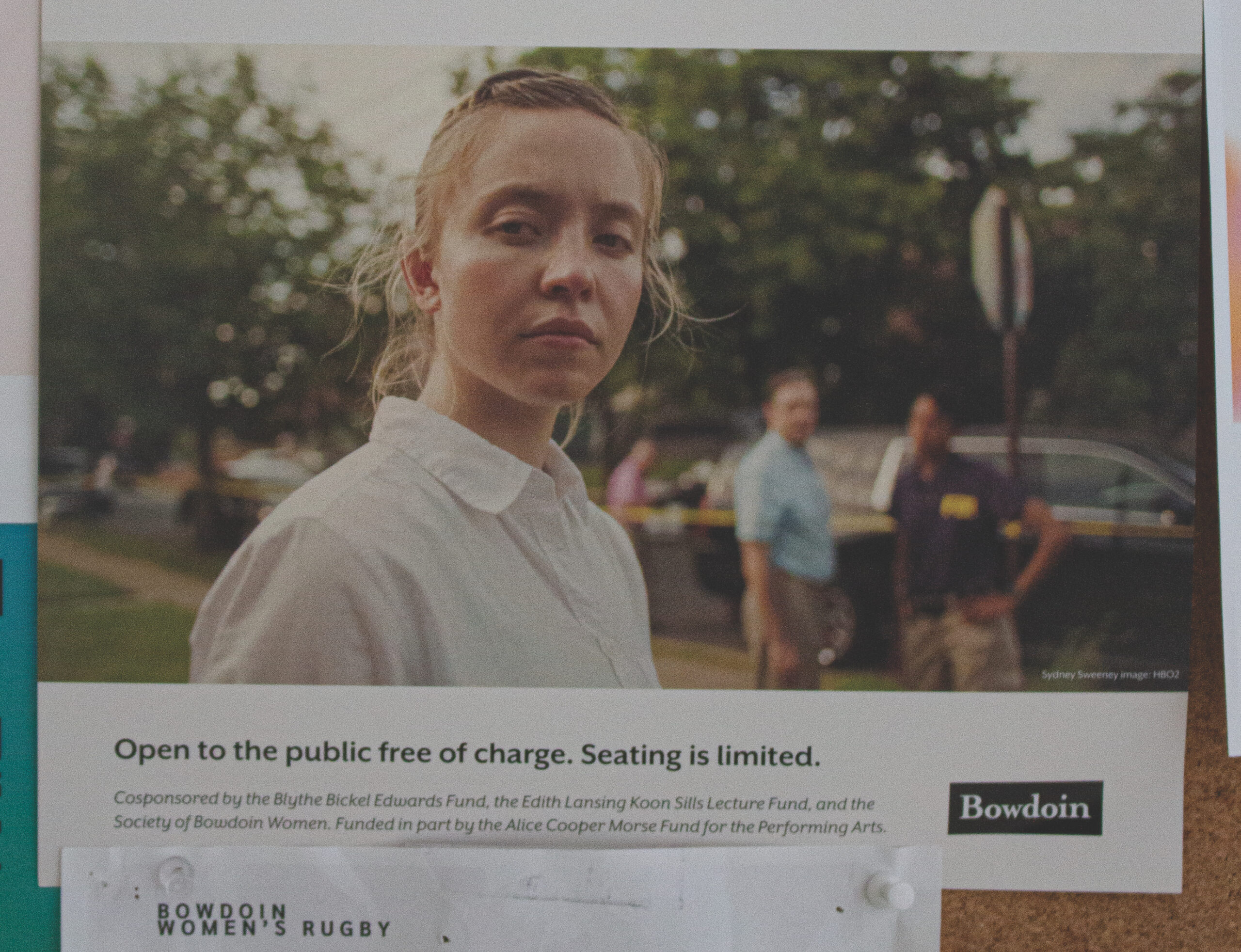Director Kristina Satter talks “Reality”
March 29, 2024

On Wednesday night, students, faculty and area residents gathered in Mills Hall’s screening room for a showing of “Reality” (2023). Directed by Kristina Satter ’96, who gave a Q&A after the screening, the film is based on the story of Reality Winner, a former NSA translator who was convicted in 2018 of leaking classified files about Russian interference in the 2016 presidential election.
The film stars Sydney Sweeney as Winner, supported by Josh Hamilton and Marchánt Davis as FBI agents and interrogators. “Reality” premiered at the Berlinale film festival in February last year and is distributed by HBO.
Satter happened upon Winner’s story while reading New York Magazine, where she first read the transcripts of the FBI’s interviews with Winner. She began working with the story as a playwright, taking it to the stage as an off-Broadway show in New York City in 2021. After creating the play, Satter then realized the story’s potential as a feature-length thriller.
“That document, showing this particular young woman go through this, felt so unique because we had her words. She’s flawed—I was really drawn to this complicated young woman,” Satter said in an interview with the Orient. “We were going to see her go moment by moment through coming to terms with being caught.”
The film’s dialogue replicates the transcripts of the FBI interviews, which took place in Winner’s home. The format of the interrogation posed a difficult challenge of creating a film that remained authentic to the repetitiveness within the transcript while keeping the audience engaged.
“[The FBI investigators] asked her questions over and over again, and you think they’re going to get her. She somehow diffuses that moment…. [We made sure] that was being disrupted, that we didn’t get lulled into the cyclical nature of the transcript,” Satter said.
Similar to Satter’s stage play, the film occurred in one setting–Winner’s house. In order to create a dynamic environment that relayed Winner’s emotional experience throughout these moments, Satter focused on consistently switching the subjectivity of the camera shots.
“We can go even further with [film] storytelling, and the subjectivity is what I was gonna get to have more of in the movie,” Satter said. “‘What does this feel like for Reality?’ was the dramaturgical anchor for both the play and the movie.… All the same information and language was in the play, but we got to be more 360 [degrees] with it in the movie.”
The spatial relationship between the actors and the camera facilitates the film’s representation of Winner’s conflicted feelings about her actions. The film’s framing in particular elicited strong responses from the audience.
“You see the close up of people’s faces, the intentionality of their eyes,” Ana Pumayalli ’26, a Cinema Studies minor, said. “The dialogue is so much more present, and you can see people’s emotions and you can be drawn into a certain perspective. It really helped me understand her point of view.”
For Satter, the film conveyed much more than the story about Winner told by news outlets. Whereas newspaper articles showed mugshots of Winner and highlighted her background in the Air Force, the film presents Winner’s personality. To Satter, the film humanized Winner.
“We got to go under the headline.… [The film] is designed to let you see a human being,” Satter said.
Satter also worked directly with Winner and her family to capture the more intricate details, such as her bumper stickers that read “pray for priests” and Winner’s yellow Converse sneakers. During the Q&A event after the screening, Satter explained the importance of these accumulating details.
“I was really interested in the details of her life and how much of a biography could come out in this one hour of this young woman’s life,” Satter said. “We could really be close to this young woman, knowing her life is changing by the minute.”
For Marianna Zingone ’26, also a Cinema Studies minor, speaking with Satter after the screening provided a source of inspiration.
“It was really cool to hear her relationship with [Winner] and all the meticulous details that went into taking the bones of the transcript and making it official,” Zingone said.
Reflecting on her career, Satter recognizes that the film industry can be demanding. She encouraged students of all backgrounds to pursue their creative passions.
“As women, or as people that are not straight white guys, you feel sort of like you’ve been made to think there is a certain power actor or a kind of big movie.… [It] feels very rote and pressuring, like you need to make something perfect,” Satter said. “It can be so paralyzing. Think, ‘What is the fun, stupid thing that I can do?’ I think a lot of [films] are made that way.”

Comments
Before submitting a comment, please review our comment policy. Some key points from the policy: